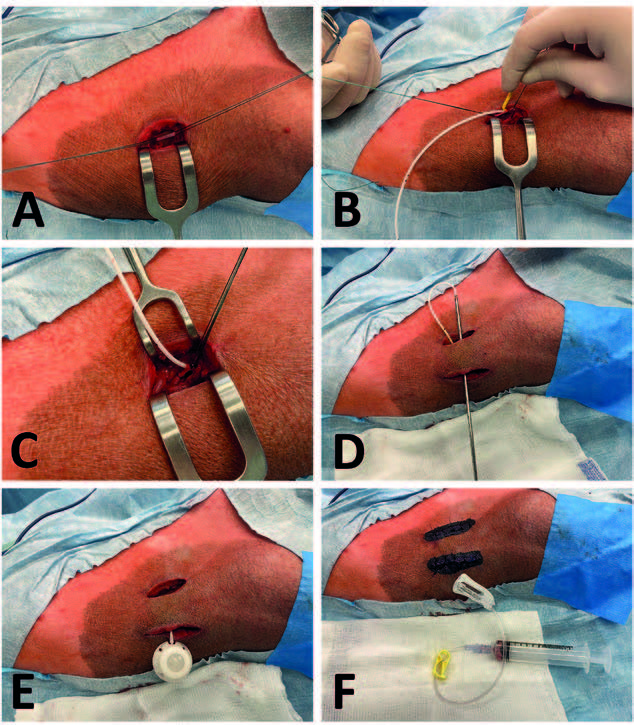Abstract
Introduction: Permanent intravenous access is usually required in pigs used for surgical experiments, not only to enable repeated blood sample collections. The aim of this study was to evaluate the patency and complications of vascular access ports (VAP) implanted in pigs included in different surgical experiments.
Methods: VAPs were implanted via the external jugular vein in a total of 211 pigs from 7 different experiments. All observed complications were retrospectively evaluated.
Results: No complications were observed in 157 animals (74.4%). Complications of the least severity were edema or seroma around the port which were observed in 12 (5.7%) and 3 (1.4%) animals, respectively. Temporary problems with aspiration of blood via the port occurred in 13 animals (6.2%). The most severe complications which prevented the use of the VAP for aspiration and application were recorded in 26 animals (12.3%). These complications included: abscess formation around the port (12 animals), skin necrosis over the port (2 animals), partial wound dehiscence (2 animals) and loss of the VAP function due to an unspecified cause (10 animals). Removal of the VAP was not needed in any of the animals and none of the animals had to be excluded from the experiment due to the complications. The VAP can also be used for safe administration of iodine contrast agent during CT examination.
Conclusion: Despite the observed complications the VAP is suitable as permanent intravenous access in pigs used for surgical experiments. This method helps to minimize the stress of the animals in the postoperative period and to reduce the number of experimental animals

